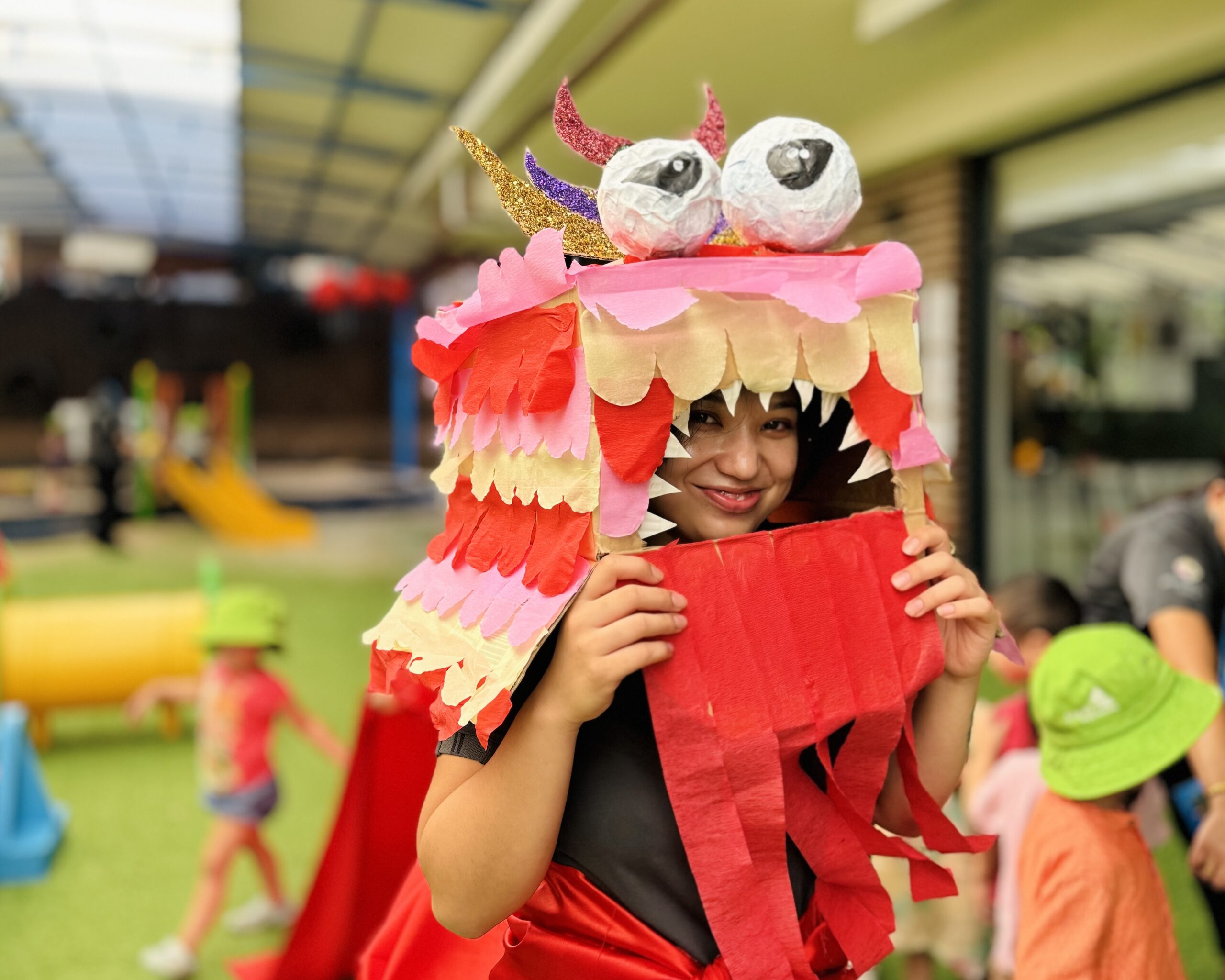
At Papilio Early Learning, we believe that exposing children to a wide range of cultures and languages is essential for their development. Research shows that when children engage with different cultures, they build cognitive, social, and emotional skills that prepare them for a diverse world. Through immersive experiences - like celebrating Diwali and Lunar New Year and learning about First Nations culture through our partnership with Wandana Aboriginal Education - Papilio centres provide rich opportunities for cultural exploration. Here’s how child development and diversity are intertwined and how Papilio’s approach supports holistic growth.
The Cognitive Benefits of Cultural Diversity in Early Learning
Research indicates that exposure to cultural diversity positively impacts children’s cognitive development. Studies from the National Association for the Education of Young Children (NAEYC) highlight that children who experience diverse cultural environments develop cognitive flexibility, or the ability to consider multiple perspectives and solutions. When children learn about other cultures and languages, they expand their vocabulary, improve memory, and strengthen problem-solving skills, all essential for lifelong learning.
At Papilio, our approach to multicultural child care involves using diverse learning materials that introduce children to various cultural traditions, stories, and languages. Whether it’s through reading a story about Diwali or hearing songs in different languages, these activities stimulate cognitive growth and broaden children’s understanding of the world around them.
Social and Emotional Growth Through Cultural Learning
Cultural diversity also plays a vital role in supporting children’s social and emotional development. By learning about different cultures, children develop empathy, tolerance, and respect - qualities that help them build meaningful relationships. Research from the Harvard Graduate School of Education highlights that children who grow up in culturally diverse environments are more socially aware, empathetic, and accepting of others, setting a foundation for strong social skills.
Through celebrations like Diwali and Lunar New Year and others, Papilio centres bring cultural diversity to life, creating hands-on learning experiences that engage children’s curiosity and empathy. During Diwali, children may explore vibrant rangoli designs and learn about the significance of light, while Lunar New Year festivities might include crafting lanterns and learning about family traditions. These celebrations help children appreciate others’ values and customs, enriching their social skills in the process.
The Role of First Nations Education in Child Development
Our partnership with Wandana Aboriginal Education offers children an authentic connection to Aboriginal and Torres Strait Islander culture. Through interactive storytelling, language learning, and cultural activities, children at Papilio centres gain a respectful understanding of Australia’s First Nations traditions. This partnership encourages children to see cultural diversity as an enriching part of their identity and community, fostering respect for Australian Aboriginal and Torres Strait Island culture and history. By introducing children to one of the world’s oldest continuous cultures, we help them build a well-rounded worldview that values inclusivity and respect.
How Papilio Incorporates Cultural Diversity Daily
1. Multicultural Celebrations and Traditions
We recognise that celebrating a variety of cultural events helps children understand and appreciate diversity. Throughout the year, our centres engage in meaningful celebrations like Diwali and Lunar New Year, bringing cultural traditions to life through art, stories, and hands-on activities. These experiences allow children to connect with their own culture and explore others, promoting openness and curiosity.
2. Diverse Learning Materials and Language Exposure
Papilio classrooms feature materials that reflect different cultures, languages, and customs. From books and music to art projects, children encounter diverse perspectives daily. Research shows that exposure to multiple languages in early childhood can improve memory, adaptability, and even academic performance later on. By incorporating a range of cultural stories, songs, and languages, we create a learning environment that stimulates both cognitive and social development.
3. Inclusive Classroom Practices
Our educators prioritise inclusivity and create a welcoming atmosphere where each child’s cultural background is celebrated. By using inclusive language, introducing basic words in various languages, and encouraging children to share their family traditions, we create a supportive space where everyone feels valued. Such practices teach children that diversity is something to be respected and cherished, helping them develop a positive self-identity and respect for others.
Developmental Benefits of Learning About Different Cultures
When children engage with cultural diversity, they gain significant developmental advantages. Studies show that children who are exposed to multiple cultures develop adaptability, empathy, and social awareness - skills that contribute to both academic success and positive social relationships. The experiences children gain at Papilio prepare them for a multicultural society, equipping them with the knowledge and confidence to interact respectfully with people from all backgrounds.
Developmental Benefits of Learning About Different Cultures
Preparing Children for a Diverse World at Papilio
At Papilio Early Learning, we recognise that learning about different cultures enriches children’s lives, preparing them to thrive in a diverse world. Through multicultural celebrations, Indigenous education, and inclusive daily practices, we aim to foster a community where every child feels connected and respected. By giving children these experiences, we’re helping them build empathy, cultural awareness, and the skills needed to succeed in a global society.
Explore how Papilio Early Learning Centres support child development and diversity through a rich, multicultural learning environment. Visit us today to learn more.